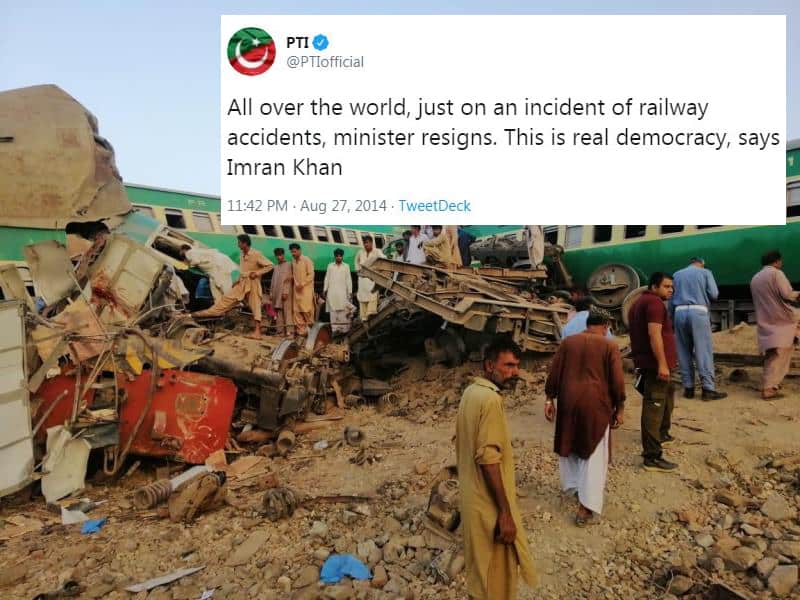With the tragic train accident in Sadiqabad claiming over 20 lives, an old tweet of the now ruling Pakistan Tehreek-e-Insaf (PTI), has come back to haunt the Prime Minister (PM) Imran Khan-led government.
At least 24 people were killed and over 100 injured when the Akbar Bugti Express travelling from Lahore to Quetta on Thursday collided with a stationary freight train at the Walhar Railway Station.
It wasn’t later that opposition leaders stepped up to seek Federal Minister for Railways Sheikh Rasheed’s resignation.
Blaming human negligence for the accident, Rasheed rubbished the opposition’s demands. “I will step down if [PM] Imran Khan asks me to do so,” a private media outlet quoted the minister as saying.
However, soon after the opposition parties’ demand made headlines, an old PTI tweet quoting its chief started doing rounds on social media.
All over the world, just on an incident of railway accidents, minister resigns. This is real democracy, says Imran Khan
— PTI (@PTIofficial) August 27, 2014
“All over the world, just on an incident of railway accidents, minister resigns. This is real democracy, says Imran Khan [sic],” the tweet from August 2014 stated. It had come as Imran demanded Pakistan Muslim League-Nawaz (PML-N) leader and then railways minister Khawaja Saad Rafique’s resignation.
This isn’t the first time an old tweet has come back to bite the PTI government.
As PM Imran reached China amid Tehreek-e-Labbaik Pakistan’s (TLP) nationwide protests last year, a 2012 tweet of his, went viral. In the tweet, he had criticised the then premier for traveling abroad as the country “burned”.
Karachi to Gilgit Pak is burning & rulers least bothered. Instead they are travelling abroad or boasting of invisible "achievements"!
— Imran Khan (@ImranKhanPTI) April 4, 2012
It was aimed at criticising former prime minister Yousaf Raza Gillani, who had traveled to China for the Boao Forum while violence linked to sectarian, ethnic and political tensions continued in different parts of the country.







